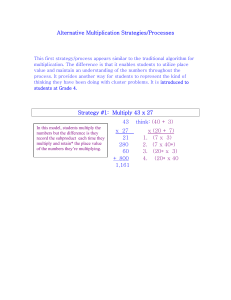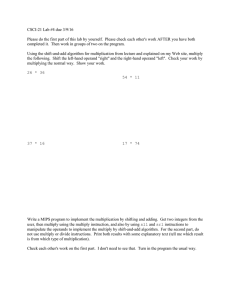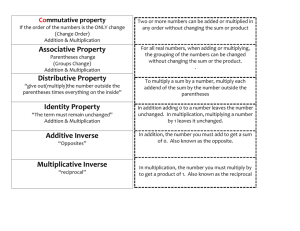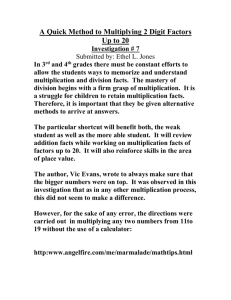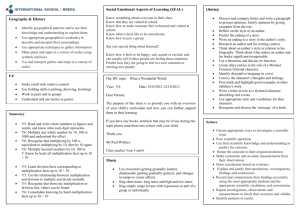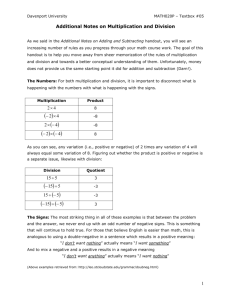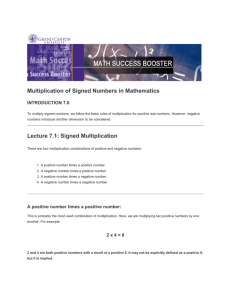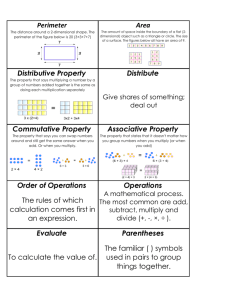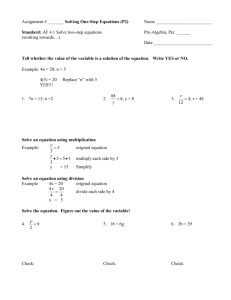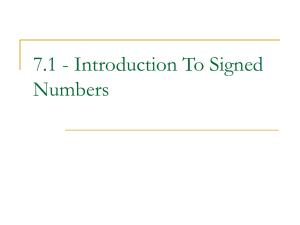Multiplying Integers: Rules and Examples
advertisement
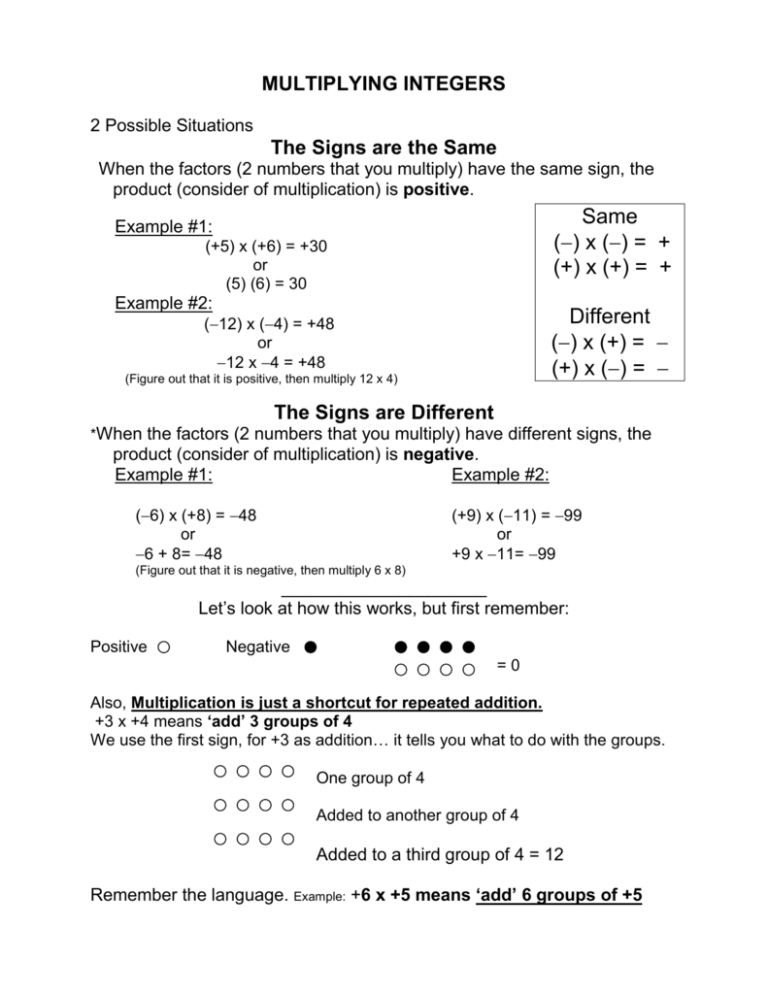
MULTIPLYING INTEGERS 2 Possible Situations The Signs are the Same When the factors (2 numbers that you multiply) have the same sign, the product (consider of multiplication) is positive. Same () x () = + (+) x (+) = + Example #1: (+5) x (+6) = +30 or (5) (6) = 30 Example #2: Different () x (+) = (+) x () = (12) x (4) = +48 or 12 x 4 = +48 (Figure out that it is positive, then multiply 12 x 4) The Signs are Different *When the factors (2 numbers that you multiply) have different signs, the product (consider of multiplication) is negative. Example #1: Example #2: (6) x (+8) = 48 or 6 + 8= 48 (+9) x (11) = 99 or +9 x 11= 99 (Figure out that it is negative, then multiply 6 x 8) _____________________ Let’s look at how this works, but first remember: Positive Negative =0 Also, Multiplication is just a shortcut for repeated addition. +3 x +4 means ‘add’ 3 groups of 4 We use the first sign, for +3 as addition… it tells you what to do with the groups. One group of 4 Added to another group of 4 Added to a third group of 4 = 12 Remember the language. Example: +6 x +5 means ‘add’ 6 groups of +5 What happens when the signs are different? +3 x –4 = “add” 3 groups of –4 + + = -12 Now let’s look at the first number being negative. Since +3 x –4 = “add” 3 groups of –4 Then -3 x +4 = “take away” 3 groups of +4 ________________________________________________ Remember that any equal number of - and + integers equals 0 (zero) =0 ________________________________________________ Start at zero… then -3 x +4 = “take away” 3 groups of +4 When we ‘take away’ 3 groups of positive 4 we are left with -12 _______________________________________________ And now… Why is a negative times a negative = a positive? Start at zero… =0 –3 x –4 = “take away” 3 groups of -4 When we ‘take away’ 3 groups of negative 4 we are left with +12
